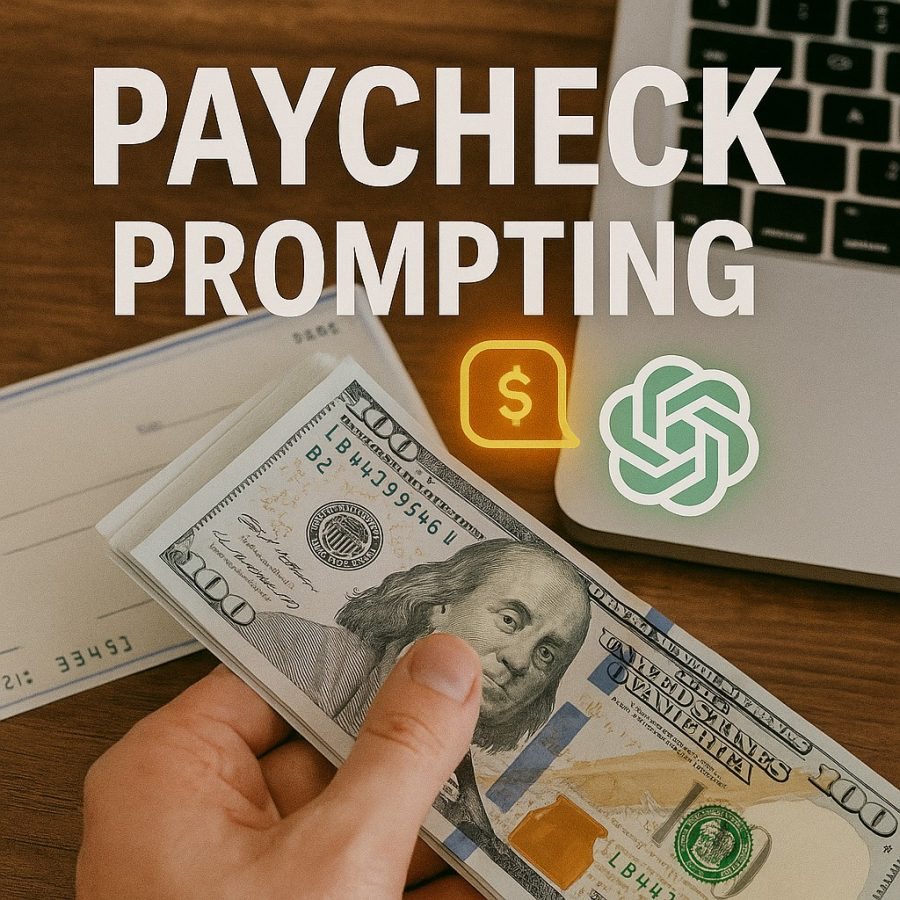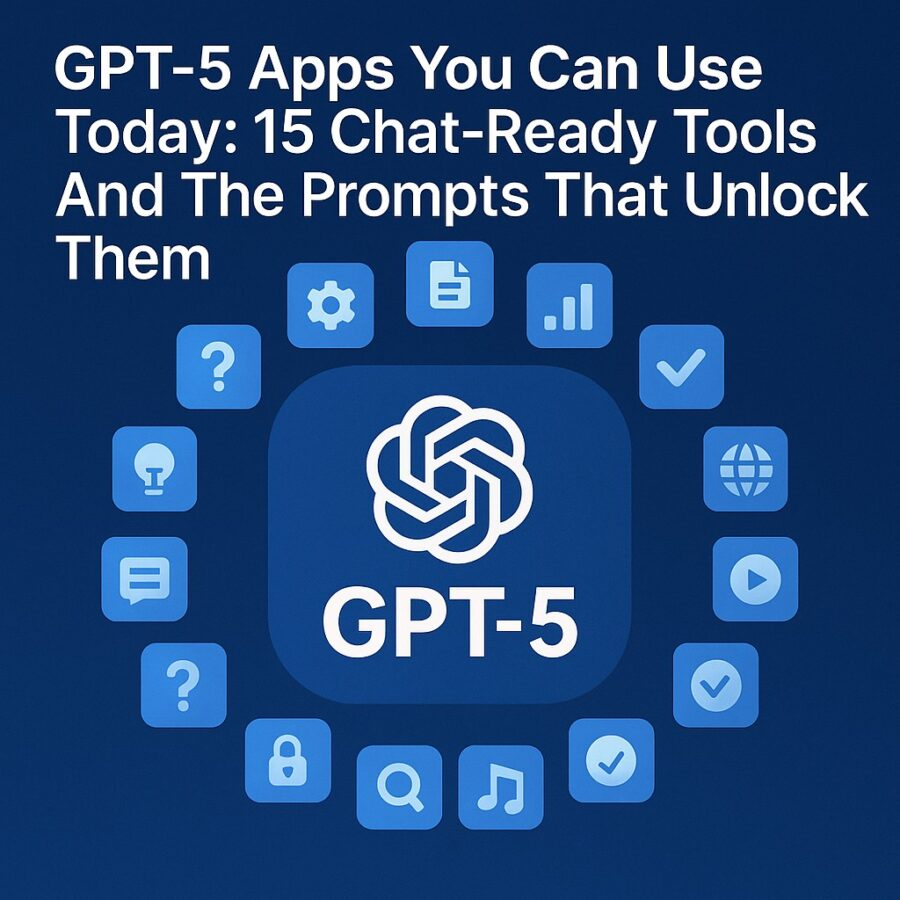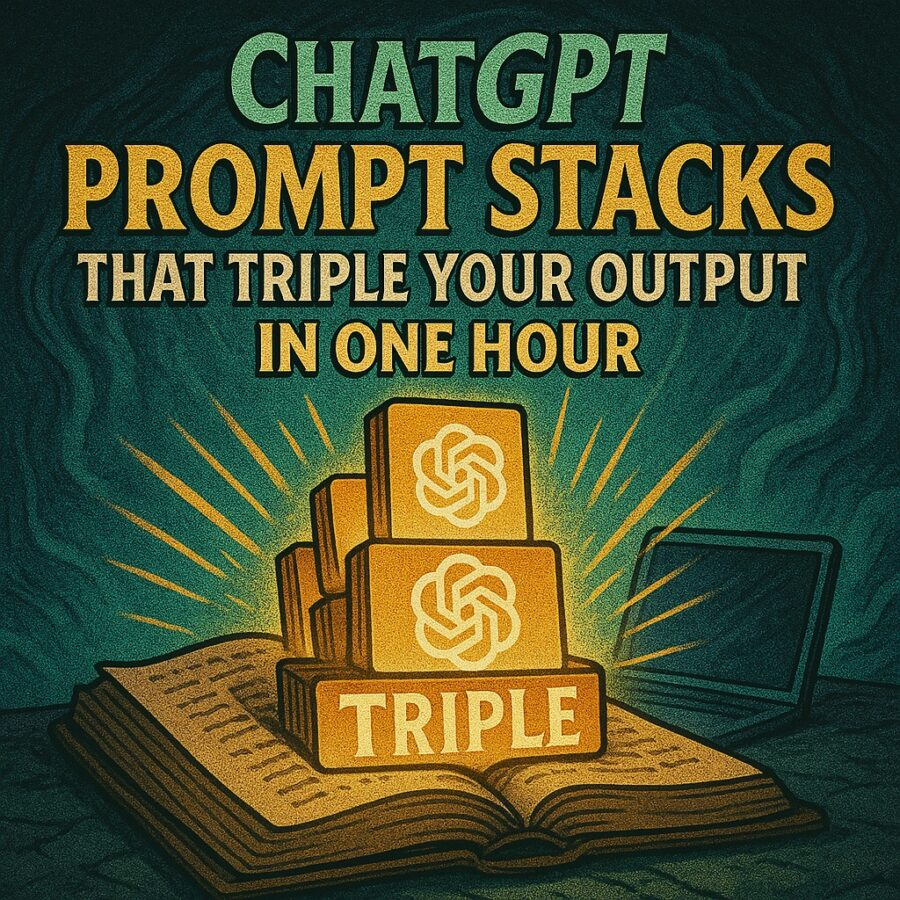Views: 0
There is something strangely anticlimactic about payday. You wait two weeks, maybe a month, watch your paycheck land with a little digital confetti in your banking app, and then—poof—it disappears into rent, bills, gas, groceries, and whatever subscription you forgot you still had. It feels less like financial freedom and more like watching water drain down a sink.
That is where paycheck prompting changes the game. Instead of letting your income vanish, you can type a few lines into ChatGPT, tell it exactly what you earn, and watch as it builds a budget plan tailored to your paycheck. It is like handing your salary to a personal finance wizard who works instantly and never charges a consultation fee.
This article will show you how to use paycheck prompting to turn raw numbers into a money map that makes sense. By the end, you will know how to prompt ChatGPT to create budgets, track spending, plan savings, and even coach you on your money mindset. The only thing you need to bring to the table is honesty about your income and a willingness to let AI do the math.
Why Paycheck Prompting Works
Traditional budgeting often starts with generic advice: spend less, save more, avoid lattes. That is about as helpful as being told to “eat better” without knowing whether that means more protein or fewer cookies. Paycheck prompting flips the script by making the budget personal.
When you tell ChatGPT your income, it can build frameworks that fit your paycheck to the dollar. It can apply popular methods like the 50/30/20 rule or zero-based budgeting, but in a way that adapts to your exact situation. Instead of vague percentages, you get real numbers that align with your lifestyle.
Budgeting is no longer about trying to squeeze into a one-size-fits-all plan. It is about seeing how your paycheck can cover needs, support wants, and still set aside savings without you feeling like you are punishing yourself.
Step One: Put Your Paycheck on the Table
The first step to paycheck prompting is telling ChatGPT what you make. For this to work, you have to be specific. Gross income before taxes does not help much. Net income, the actual number that hits your account, is what matters.
Prompt: “I make $3,800 per month after taxes. Create a budget that shows how much I should allocate to rent, utilities, groceries, transportation, debt payments, and savings.”
Prompt: “My income is $2,700 monthly after taxes. I want to prioritize paying off $4,000 in credit card debt while still saving at least $100 per month. Build me a budget.”
Prompt: “I earn $4,500 after taxes every month. Show me how to split this paycheck using the 50/30/20 rule with exact amounts.”
Once you see your paycheck mapped out like this, you realize you are not broke—you are just disorganized. The budget magic begins the moment you line up your income with clear categories.
Step Two: Pick a Budget Style That Fits
Not everyone thrives under the same budgeting framework. Some like structure, some like flexibility. Paycheck prompting lets you test different styles instantly.
Prompt: “Design a zero-based budget for a monthly income of $3,200, making sure every dollar has a purpose and leftover funds go to savings.”
Prompt: “Build me a weekly envelope-style budget for an income of $3,000 per month, splitting funds into groceries, gas, dining out, entertainment, and personal spending.”
Prompt: “I want a simple budget that sets aside money for bills first, then divides the rest equally between savings and discretionary spending. My income is $4,100 monthly.”
Trying these options is like trying on outfits. One will feel too tight, one too loose, and one just right. Paycheck prompting makes it painless to experiment until you find your fit.
Step Three: Automate the Flow
Budgeting magic happens when the system runs without you constantly managing it. With paycheck prompting, you can automate your map into schedules and reminders.
Prompt: “Write me a biweekly paycheck plan where I pay rent with my first check of the month and utilities, groceries, and debt with the second check. My monthly income is $3,600.”
Prompt: “Create a recurring checklist I can follow every payday to automatically transfer money to bills, savings, and spending categories.”
Prompt: “Generate a Notion template that tracks my paychecks, bills, and remaining discretionary money each month.”
Automation reduces stress. Instead of worrying whether bills got covered, you follow a system that repeats itself like clockwork.
Step Four: Handle Debt Like a Pro
Debt drains paychecks fast. Paycheck prompting lets ChatGPT design strategies that work with your income instead of against it.
Prompt: “I make $3,200 monthly after taxes. My debts are: $500 credit card, $2,500 personal loan, and $7,000 student loan. Build me a debt snowball plan with my income.”
Prompt: “Show me an avalanche repayment strategy for the same debts using my monthly paycheck and calculate how much interest I save compared to the snowball method.”
Prompt: “Write me a hybrid plan that balances fast psychological wins with long-term interest savings, based on my $4,000 monthly paycheck.”
Debt no longer feels like a wall. With paycheck prompting, it becomes a staircase you can climb one step at a time.
Step Five: Save Without Strain
Savings often get ignored until “later.” The problem is that later never arrives unless you make it automatic. Paycheck prompting helps you tuck savings into your budget without the sting.
Prompt: “My monthly income is $3,800. Create a savings plan where $200 goes into an emergency fund, $100 into retirement, and $50 into a travel fund each month.”
Prompt: “I want to save $5,000 in 18 months. Show me how much I need to set aside from my $2,900 monthly paycheck and how to divide it across pay periods.”
Prompt: “Build a step-up savings plan where I increase my contributions every six months until I am saving 20 percent of my paycheck.”
Saving becomes less painful when it is tied directly to the paycheck flow.
Step Six: Adapt When Life Changes
Budgets are not carved in stone. New expenses show up, income changes, emergencies happen. Paycheck prompting allows you to adjust on the fly.
Prompt: “Update my $3,500 monthly budget to account for a $200 increase in rent while still keeping at least $150 in savings.”
Prompt: “I just got a raise from $3,000 to $3,400 monthly. Show me how to adjust my paycheck plan to increase savings without cutting spending categories.”
Prompt: “Rebuild my budget if I need to add $250 monthly childcare costs to my $4,200 income.”
The beauty of paycheck prompting is flexibility. Life throws curveballs, but your budget can flex without breaking.
Step Seven: Add Extra Income to the Mix
Sometimes the best way to unlock budget magic is by growing the paycheck itself. Side hustles and bonuses can supercharge your plan.
Prompt: “I earn $3,000 monthly but expect an extra $500 from freelancing. Show me how to use that side income entirely for debt repayment.”
Prompt: “Design a paycheck plan where any bonuses or overtime pay go directly into savings, while my main salary covers all expenses.”
Prompt: “Help me create a flexible paycheck budget that automatically adds extra income into my highest financial priority.”
When you see extra income mapped into your paycheck flow, you stop wasting it and start accelerating your financial goals.
Step Eight: Stay Motivated with Paycheck Prompting
Budgeting is not just math; it is mindset. Staying motivated keeps you from abandoning the plan halfway. ChatGPT can coach you through with paycheck-driven encouragement.
Prompt: “Write me a motivational message reminding me how much freedom I gain every time I budget my paycheck instead of spending blindly.”
Prompt: “Create a progress tracker that shows what percentage of my income is going toward savings and debt each month.”
Prompt: “Write a pep talk from my future self who is debt-free and has a six-month emergency fund, thanking me for budgeting each paycheck.”
Motivation cheat codes make the paycheck routine feel less like a grind and more like a game you are winning.
Why Paycheck Prompting Is a Game Changer
- Personalization: It uses your real income, not averages.
- Clarity: You see exactly where money should flow.
- Flexibility: It adapts when life changes.
- Motivation: It keeps you engaged with scripts and trackers.
- Speed: Budgets appear in minutes, not hours.
With paycheck prompting, you do not just create a budget—you create confidence.
From Paycheck Stress to Paycheck Magic
Paydays do not have to feel like a disappearing act. With paycheck prompting, you take control by telling ChatGPT your income and letting it map your money. The process is fast, flexible, and oddly fun once you see how powerful a clear paycheck plan feels.
The magic is not that AI calculates numbers you could do yourself. The magic is that it saves you time, removes the mental load, and keeps you accountable. You no longer wonder where the money went. You know where it is going.
So next payday, do not just watch your balance rise and fall. Type your income into ChatGPT, watch the budget magic happen, and realize you finally hold the cheat codes to financial control.






